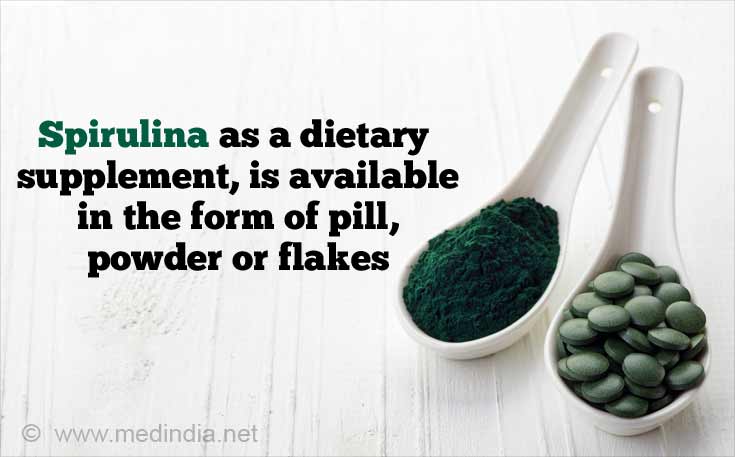Nutrient Content in Spirulina
Spirulina contains more than 65 percent of proteins and all the essential amino acids. Although it is promoted as a health product of immense value, some amino acids such as methionine, cysteine and lyseine are found in reduced amounts when compared to what is found in meat, milk or eggs. The irony remains that it is 30 times more expensive.
The protein content in spirulina is superior to plant proteins, such those seen in legumes.
It also contains vitamins, rhamnose sugars, minerals and essential enzymes.
Other nutrients in Spirulina include:
Lipids:
- Gamma linoleic acid
- Alpha-lenoleic acid
- Linoleic acid
- Stearidonic acid
- Eicosapentaenoic acid
- Arachidonic acid
Vitamins:
- Vit A
- Vit B1-Thyamine
- Vit B2 -Riboflavin
- Vit B3 –Nicotinamide
- Vit B6 –Pyridoxine
- Vit B9 –Folic acid
- Vit C
- Vit D
- Vit E
Minerals:
- Calcium
- Potassium
- Chromium
- Magnesium
- Manganese
- Sodium
- Zinc
- Copper
- Iron
Spirulina also has a whole lot of pigments like betacarotene, xanthophyll,and several others pigments, all of which have immense health and anti-ageing benefits.
As a dietary supplement, spirulina is available in the form of pill, powder or flakes. The dose for spirulina as a dietary supplement is 2000mg to 3000mg (4 to 6 tablets) per day for adults. It is best to take the advice of the health care professional for the safety and dosage for use in children.






